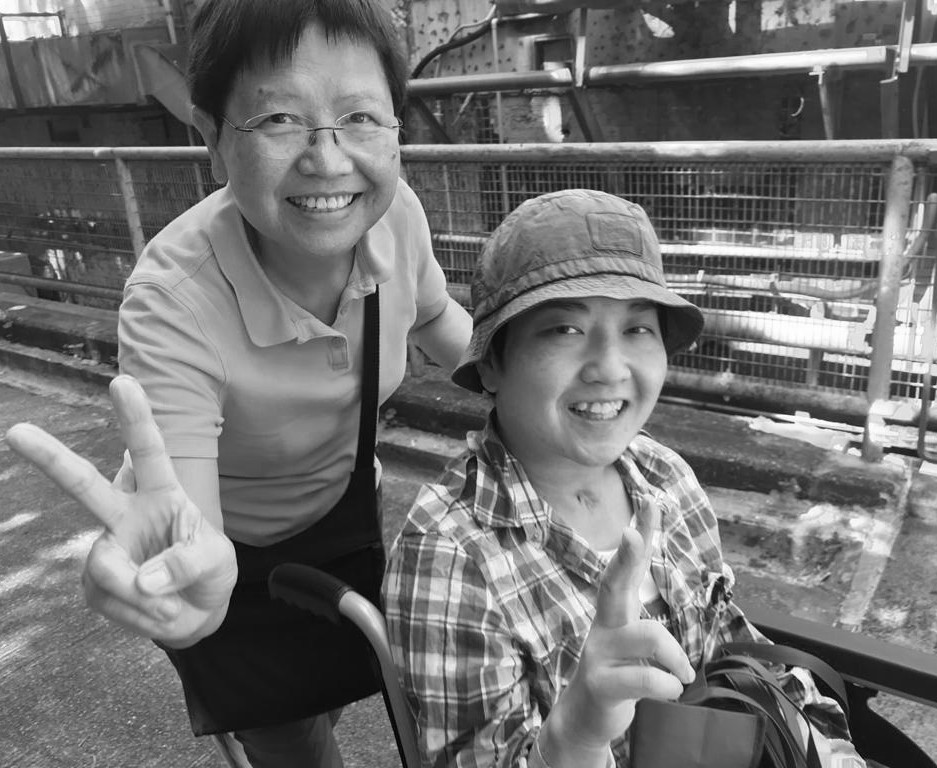06 | Our Caregiver
Jessie Yu

A New Beginning
Jessie Yu is the caregiver of her daughter, a girl suffering from anti-NMDA receptor encephalitis since 2018. During the onset of her daughter’s disease, what was originally just fevers and headaches soon turned into muscle cramps, memory problems, and temporary comas. In the hospital, despite undergoing a plethora of diagnostic tests such blood tests and bone marrow biopsies, doctors failed to diagnose her daughter’s illness. It was not until her daughter fell into a coma and had to be transferred into the ICU that doctors finally managed to find the correct prescription to relive her symptoms. Even so, the damage was done, and due to an injured hypothalamus, Jessie’s daughter lost all short-term memories as well as the ability to sit, speak, walk, and write. Nonetheless, this did not deter Jessie from accompanying her daughter in every step of the recovery process.
A Long Journey Ahead
Despite being on the path of recovery, Jessie’s daughter began suffering from hallucinations a year after leaving the hospital. Every now and then, she would leave the house in the early hours of morning on her own. It is only due to the hospital having Jessie’s number that Jessie can bring her wandering daughter back home. Psychiatrists at Sha Tin Hospital prescribed medications to treat the hallucinations, yet these medications can cause depression as a side effect. For Jessie and her daughter, the path to recovery may be a long and winding one, yet they are committed to going through it together.
About Anti-NMDA Receptor Encephalitis
Cause
Autoimmune disease caused by antibody attacks against NMDA receptors
Inheritance
No evidence shown that it is hereditary
Prevalence
Affects 5 patients in HK
Symptoms
Convulsion, hallucination, fever and lost of memory may occur. Thus, the clinical manifestations resembles that of psychosis and schizophrenia
Effect
Many patients can recover, but may suffer from memory loss, change in personality, etc.; it may take a long time to train lost skills again.
Treatment
Drugs such as rituximab and cyclophosphamide can be used. If the disease is caused by an ovarian tumour which produces the antibodies, surgical removal could be done.



"Joint clinics by a team of doctors from different specialties is multitudes better than each specialist seeing a patient on their own."

"Fighting against a rare disease is like practicing high jump—one must put their focus on the progress made, be it 1cm or 10cm, and do not focus on past failures."


